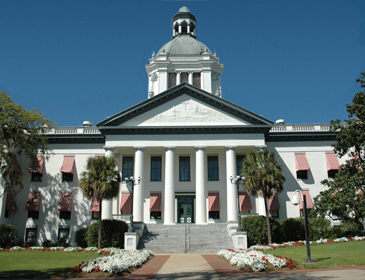The 2018 Legislative Session began on January 9 2018. The general revenue forecast for FY 2018-19 includes an estimated $52 million surplus, however, costs associated with Hurricane Irma or additional changes to federal policy were not factored into this budget. This is after all, Governor Scott’s last budget. However, sunshine state insiders have warned of significant shortfalls over the next two years. Governor Scott has proposed $87.4 billion budget for 2018-19 that includes over:
- $11.9 billion state investment for K -12
- $1.26 billion for the Florida College System institutions
- $2.46 billion for the state universities.
The budget does NOT recommend tuition increases instead performance funding appears to be a priority for the governor. The budget recommends doubling the state investment for performance funding for the Florida College System to $60 million, increasing the state investment for state universities to $395.6 million and increasing the incentive funding to colleges for industry certifications to $14 million. Governor Scott’s recommended budget also provides an additional $23 million for the Bright Futures merit based scholarship program and maintains 100 percent tuition funding for the Academic Scholars.
Here is a snapshot of higher education related bills the Florida Consortium of Metropolitan Research Universities is watching:
CS/SB 4: Florida Excellence in Higher Education Act of 2018
Key points include:
- Expanding the Florida Bright Futures Scholarship Program Academic Scholars and Medallion Scholars awards
- Extending the Benacquisto Scholarship Program (for National Merit Scholars) to eligible students from other states
- Establishing the Florida Farmworker Student: Scholarship Program for farmworkers and their children.
- Significant increases the state to-private match for the First Generation Matching Grant Program
- Requires each state university board of trustees adopt a block tuition option
- Modification to the state university performance funding metrics to incentivize on-time graduation
SB 540: Community College Competitiveness Act of 2018
Key points include:
- Reforms aimed at strengthening leadership and accountability for the state’s 28 Florida College System (FCS) institutions
- Additional oversight of bachelor’s degree programs offered by state and community colleges, including a 20 percent cap on upper-level, undergraduate enrollment at each FCS institution and a 10 percent cap for the system as a whole
- Requires each FCS institution to implement at least one “2+2” targeted pathway articulation agreement with at least one state university to help their associate’s degree earners transfer and complete a bachelor’s degree. Florida Consortium member institutions have strategic articulation agreements that have successfully help thousands of student make the transition from community college to four year institutions.
HB 181: Sunshine State Scholarship Program
Key points include:
- Establishing the Sunshine State Scholarship Program, a last-dollar scholarship that covers 100 percent of tuition and fees for eligible low-income Florida students attending a public community college or technical school
- The new scholarship program would cover the remaining cost of tuition and fees not provided by other sources of financial aid, including Bright Futures, Florida Student Assistance Grant, the Pell Grant, and other grants and scholarships
- To receive this scholarship, students must have an annual household income of $50,000 or less, complete the Free Application for Federal Student Aid (FAFSA), be enrolled full-time, attend a Florida College System institution or technical college, and maintain at least a 2.5 GPA.
HB 75: Postsecondary Education Fee Waivers for Eligible U.S. Armed Forces Members
Key points include:
A mechanism/option for Florida College System institutions to absorb fees for active duty U.S. Armed Service members using Department of Defense (DOD) Military Tuition Assistance (MTA). This would prevent these students from incurring any out-of-pocket costs for tuition and fees
HB 565: Excess Credit Hour Surcharge
Key points include:
State university students who earn a bachelor’s degree within four years should bypass paying an excess credit hour surcharge and provides higher excess credit hour surcharge thresholds for students enrolled in a degree program of strategic emphasis (science, technology, engineering, math and health disciplines, etc.).To date, the excess hour surcharge has inspired several debates and discussion on college campuses throughout the state. While legislators see this measure as an incentive for students to complete their course work in four years; students especially those that work or have families have argued that the surcharge is anything but an incentive.
In closing, this legislative session poses many implications for higher education as well as K-12. The Florida Consortium of Metropolitan Research Universities will be monitoring these bills that could impact how colleges and universities support the state’s pipeline of skilled workers.

